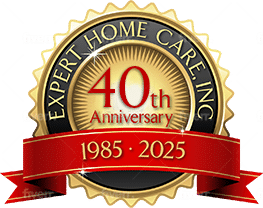New Jersey Senior Health
Consider these common myths about medication use:
•   If one dose makes me feel good, a larger dose will make me feel even better.
•   If I run low I can cut the pills in half so they will last longer.
•   If I can buy it over the counter, it must be safe.
•   If a physician gave it to me before, I can use it again any time.
•   If it helped my friend, it will help me.
Following any of these myths can cause serious trouble. While advances in medicine have produced many effective drugs to treat various chronic conditions, certain drugs when taken together can produce adverse reactions. This is particularly true among the elderly, who may suffer from a number of different ailments consistent with aging, such as cardiovascular disease, arthritis, gastrointestinal disorders, and bladder dysfunction. Over medication can cause such side effects as dizziness, confusion, fatigue, heartburn, insomnia, falls, depression and general malaise. The risk of adverse drug reactions rises exponentially with the number of drugs used, and older people are particularly sensitive to potential adverse reactions.
For example, the drug Coumadin, a blood thinner used by patients after cardiac surgery or stroke, or to treat clots, can cause bleeding if taken with aspirin. Use of an anti-depressant can lead to serious side effects if taken in combination with an over-the-counter cold and cough remedy. Medicines frequently associated with adverse reactions in the elderly are psychotropic drugs, especially benzodiazepines, as well as anti-hypertensive agents, digoxin (a cardiac drug), corticosteroids, warfarin (taken for blood clotting), diuretics, Non-Steroid Anti-Inflammatory Drugs, and theophylline (a medication for chronic asthma).
Polypharmacy
Polypharmacy is defined as the use of multiple medications. While seniors comprise 12% of the population, they use 32% of all prescriptions. This can include, on average, up to six prescription drugs and 3 – 4 over-the-counter medicines at a time, as well as vitamin supplements and herbal preparations. The average patient of skilled home health care takes 11 drugs simultaneously. Over medication among the elderly is not surprising – after all, many elderly people see multiple specialists, who may prescribe medications without full knowledge of what else their patient is taking.
Polypharmacy can lead to adverse drug reactions, decreased adherence to drug regimens, increased hospitalization rates, a high rate of symptoms, unnecessary drug costs and a poor quality of life. Studies show that one out of seven hospital inpatient days is a result of a medication problem.
Doctors and pharmacists recommend a “brown bag review†– where seniors take all of their medications to their doctor or pharmacist and have them screened for appropriate dosages and potential interactions. ♦
New Jersey’s Expert Home Care provides professional and reliable care and assistance for NJ seniors, helping them with their daily living activities since 1984. Please call us when you need help at 800-848-2336.
Posted by: Frank Esposito, Vice President of Expert Home Care
- NJ Home Health Care Client Bill of Rights - March 12, 2019
- Senior Home Care Preparation For New Jersey Families - December 17, 2018
- Elder Abuse More Common Than Thought - December 10, 2018

